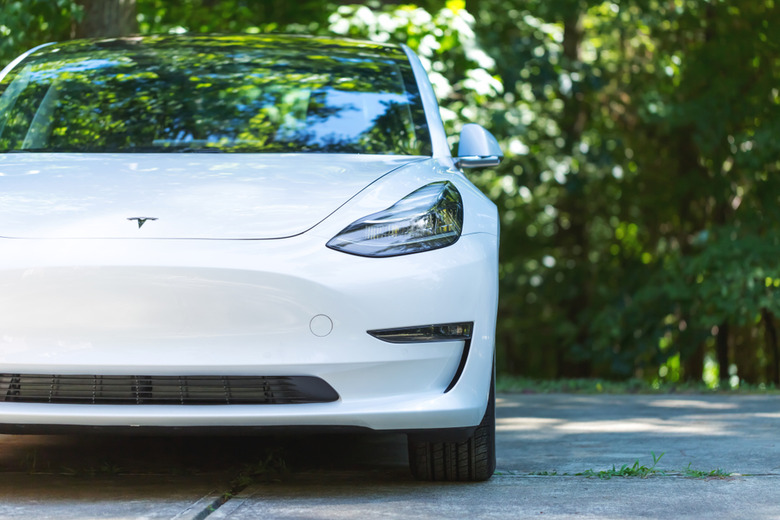NHTSA Says Tesla's Model 3 Safety Claims Are 'Misleading'
Tesla has for years boasted about the perfect 5-star safety ratings its cars have received from the National Highway Traffic Safety Administration (NHTSA). Now, in an odd turn of events that will perhaps not surprise longtime Tesla detractors, PlainSite recently discovered that the NHTSA last year hit Tesla with a cease-and-desist letter claiming that the company's safety claims regarding the Model 3 are misleading. What's more, it was discovered that the NHTSA brought the matter to the attention of the FTC's Bureau of Consumer Protection.
To be clear, there's no issue with the Model 3's 5-star safety rating. The car, by all accounts, is remarkably safe and impressively well-engineered. The NHTSA, however, is none too pleased with how Tesla decided to articulate and spin the test results to the public. Specifically, the NHTSA takes issue with Tesla claiming that the Model 3 has the "lowest probability of injury of any vehicle ever tested by the NHTSA."
Indeed, Tesla back in October of 2018 published an entire blog post it, complete with a handy little chart.
Based on the advanced architecture of Model S and Model X, which were previously found by the National Highway Traffic Safety Administration (NHTSA) to have the lowest and second lowest probabilities of injury of all cars ever tested, we engineered Model 3 to be the safest car ever built. Now, not only has Model 3 achieved a perfect 5-star safety rating in every category and sub-category, but NHTSA's tests also show that it has the lowest probability of injury of all cars the safety agency has ever tested.
Tesla went on to add that NHTSA's test results show that "if you are driving a Tesla, you have the best chance of avoiding serious injury."
The NHTSA, however, believes that Tesla is improperly interpreting the testing data and forming conclusions that ultimately mislead the public. Specifically, the NHTSA notes that it simply gives vehicles safety ratings but does not offer up comparisons on the likelihood of injury across varying models.
Essentially, it's one thing for Tesla to boast that the Model 3 offers drivers a low risk of injury, but it's misleading to boast that the Model 3 has the lowest probability of injury across all tested cars.
Commenting on the matter, NHTSA Chief Counsel Jonathan Morrison explained:
This is not the first time that Tesla has disregarded the Guidelines...We have therefore also referred this matter to the Federal Trade Commission Bureau of Consumer Protection to investigate whether these statements constitute unfair or deceptive acts or practices.
Tesla, meanwhile, maintains that its information regarding injury probability is based on "sound public data" and that it does not "contravene NHTSA's guidelines."
